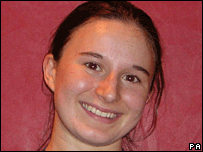Inquests in England and Wales are held into sudden or unexplained deaths and also into the circumstances of and discovery of a certain class of valuable artefacts known as "treasure trove". In England and Wales, inquests are the responsibility of a coroner, who operates under the jurisdiction of the Coroners and Justice Act 2009. In some circumstances where an inquest cannot view or hear all the evidence, it may be suspended and a public inquiry held with the consent of the Home Secretary.

Forensic pathology is pathology that focuses on determining the cause of death by examining a corpse. A post mortem examination is performed by a medical examiner or forensic pathologist, usually during the investigation of criminal law cases and civil law cases in some jurisdictions. Coroners and medical examiners are also frequently asked to confirm the identity of remains.

A coroner is a government or judicial official who is empowered to conduct or order an inquest into the manner or cause of death. The official may also investigate or confirm the identity of an unknown person who has been found dead within the coroner's jurisdiction.

The medical examiner is an appointed official in some American jurisdictions that investigates deaths that occur under unusual or suspicious circumstances, to perform post-mortem examinations, and in some jurisdictions to initiate inquests. They are necessarily trained in pathology.

A fatal accident inquiry is a Scottish judicial process which investigates and determines the circumstances of some deaths occurring in Scotland. Until 2009, they did not apply to any deaths occurring in other jurisdictions, when the Coroners and Justice Act 2009 extended the Fatal Accidents and Sudden Deaths Inquiry (Scotland) Act 1976 to service personnel at the discretion of the Chief Coroner or the Secretary of State. The equivalent process in England and Wales is an inquest. A major review of the fatal accident inquiries was undertaken by Lord Cullen of Whitekirk, at the request of the Scottish Government, which resulted in the passing of the Inquiries into Fatal Accidents and Sudden Deaths etc. (Scotland) Act 2016.

Medical jurisprudence or legal medicine is the branch of science and medicine involving the study and application of scientific and medical knowledge to legal problems, such as inquests, and in the field of law. As modern medicine is a legal creation, regulated by the state, and medicolegal cases involving death, rape, paternity, etc. require a medical practitioner to produce evidence and appear as an expert witness, these two fields have traditionally been interdependent.
The open verdict is an option open to a coroner's jury at an inquest in the legal system of England and Wales. The verdict means the jury confirms the death is suspicious, but is unable to reach any other verdicts open to them. Mortality studies consider it likely that the majority of open verdicts are recorded in cases of suicide where the intent of the deceased could not be proved, although the verdict is recorded in many other circumstances.
Operation Paget was the British Metropolitan Police inquiry established in 2004 to investigate the conspiracy theories about the death of Diana, Princess of Wales in a car crash in Paris in 1997. The inquiry's first report with the findings of the criminal investigation was published in 2006. The inquiry was wound up following the conclusion of the British inquest in 2008, in which a jury delivered its verdict of an "unlawful killing" due to the "gross negligence" of both the driver of Diana's car and the pursuing paparazzi.
A coroner's jury is a body convened to assist a coroner in an inquest, that is, in determining the identity of a deceased person and the cause of death. The laws on its role and function vary by jurisdiction.
The name of "Coroners Court" is the generic name given to proceedings in which a Coroner holds an inquest in Victoria.

The Coroners Court of Queensland is a court in the court hierarchy of Queensland, Australia. The Court has exclusive jurisdiction in Queensland over the remains of a person and to make findings about the cause of death of a person.

The Coroner's Court of the Australian Capital Territory is a court which has exclusive jurisdiction over the remains of a person and the power to make findings in respect of the cause of death of a person or fire in Australian Capital Territory.
An inquest is a judicial inquiry in common law jurisdictions, particularly one held to determine the cause of a person's death. Conducted by a judge, jury, or government official, an inquest may or may not require an autopsy carried out by a coroner or medical examiner. Generally, inquests are conducted only when deaths are sudden or unexplained. An inquest may be called at the behest of a coroner, judge, prosecutor, or, in some jurisdictions, upon a formal request from the public. A coroner's jury may be convened to assist in this type of proceeding. Inquest can also mean such a jury and the result of such an investigation. In general usage, inquest is also used to mean any investigation or inquiry.
Paul Knapman DL was Her Majesty's coroner for Westminster, from 1980 to 2011. His responsibility for investigating sudden deaths as an independent judicial officer saw him preside over numerous notable cases.

Charlotte Shaw was a fourteen-year-old British schoolgirl who drowned while crossing a swollen stream on Dartmoor during training for Ten Tors in 2007. Her death, the first to occur in connection with Ten Tors or one of its training expeditions, made national news headlines in the United Kingdom. She was with a group of students from Edgehill College trekking the route of Ten Tors in training for the main event when the group got into difficulties crossing a stream. Shaw slipped into the water and was washed downstream. She was located 20 minutes later by a Royal Navy search and rescue helicopter and airlifted to Derriford Hospital in Plymouth, where she died in the early hours of the next morning.
In many legal jurisdictions, the manner of death is a determination, typically made by the coroner, medical examiner, police, or similar officials, and recorded as a vital statistic. Within the United States and the United Kingdom, a distinction is made between the cause of death, which is a specific disease or injury, versus manner of death, which is primarily a legal determination versus the mechanism of death which does not explain why the person died or the underlying cause of death and can include cardiac arrest or exsanguination. Different categories are used in different jurisdictions, but manner of death determinations include everything from very broad categories like "natural" and "homicide" to specific manners like "traffic accident" or "gunshot wound". In some cases an autopsy is performed, either due to general legal requirements, because the medical cause of death is uncertain, upon the request of family members or guardians, or because the circumstances of death were suspicious.
A coroner in the U.S. state of Washington is a quasi-judicial, public official principally charged with the certification of human death. It is completely identical in authority to the parallel office of medical examiner, which also exists in the state. Washington uses a "mixed system" of death investigation with some counties employing coroners, and some employing medical examiners.
Athelstan Braxton Hicks was a coroner in London and Surrey for two decades at the end of the 19th century. He was given the nickname "The Children's Coroner" for his conscientiousness in investigating the suspicious deaths of children, and especially baby farming and the dangers of child life insurance. He would later publish a study on infanticide.

Olaseni Lewis, a 23-year-old British man, died on 3 September 2010 at Bethlem Royal Hospital in London, United Kingdom, after police subjected him to prolonged physical restraint. Lewis had voluntarily sought care following the onset of acute mental health issues and died from cerebral hypoxia soon after, following actions that involved eleven officers of London's Metropolitan Police. After seven years of campaigning by Lewis' family and two inquiries by the Independent Police Complaints Commission (IPCC), a second coroners' inquiry was raised.

Shukri Yahye-Abdi drowned in the River Irwell, England, on 27 June 2019. Aged 12, she was a refugee from Somalia who had lived in a refugee camp in Kenya until moving to England in 2017. She was with pupils from her school, Broad Oak High School, at the time of her death. Subsequent to her death, police reported there were no suspicious circumstances; however, Abdi's mother reported conflicting information and said that she had been complaining to her daughter's school about incidents of bullying for over a year.









